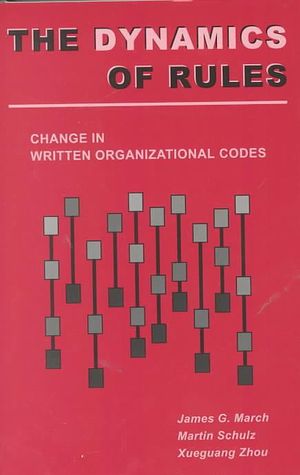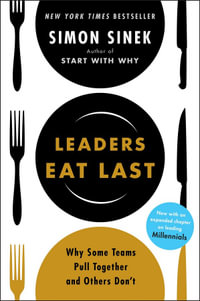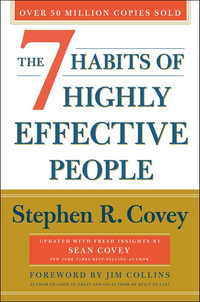
The Dynamics of Rules
Change in Written Organizational Codes
By: James March, Martin Schulz, Zhou Xueguang
Hardcover | 1 August 2000
At a Glance
Hardcover
RRP $134.20
$130.25
Aims to ship in 7 to 10 business days
Written rules in formal organizations are distinctive elements of organizational history; they shape organizational change and are in turn shaped by it. These rules are created, revised, and eliminated in ways that leave historical traces, and they have a visibility and durability that elude non-written rules. They thus provide rich data for an empirical probe into the dynamics of organizational history.
This study uses qualitative and quantitative data from the history of a specific organization, Stanford University, to develop speculations about the ways in which written rules change. It contributes both to a theory of rules and to theories of organizational decision-making, change, and learning. Organizations respond to problems and react to internal or external pressures by focusing attention on existing and potential rules. The creation, modification, or elimination of a rule, then, is a response to events in the outside environment (such as new government regulations) or to events within the organization (such as alterations in internal government structures).
The authors elaborate a simple set of ideas about written rules and their dynamics, emphasizing the interplay among periodic major shocks to the system from outside, experiences with individual rules as they age and are revised, and the spread of effects through an interconnected set of rules. It is a story in which changes introduced in one part of a rule system create adjustments in other parts, including the same rule later in time, as the consequences of the changes are experienced and as rule-making attention is mobilized, satiated, and redirected. These processes involve the full panoply of political negotiation, symbolic competition, discussion, and problem solving that are typical of organizational decision making.
Industry Reviews
ISBN: 9780804737449
ISBN-10: 0804737444
Published: 1st August 2000
Format: Hardcover
Language: English
Number of Pages: 246
Audience: Professional and Scholarly
Publisher: Stanford University Press
Country of Publication: US
Dimensions (cm): 22.86 x 15.88 x 2.54
Weight (kg): 0.54
Shipping
| Standard Shipping | Express Shipping | |
|---|---|---|
| Metro postcodes: | $9.99 | $14.95 |
| Regional postcodes: | $9.99 | $14.95 |
| Rural postcodes: | $9.99 | $14.95 |
How to return your order
At Booktopia, we offer hassle-free returns in accordance with our returns policy. If you wish to return an item, please get in touch with Booktopia Customer Care.
Additional postage charges may be applicable.
Defective items
If there is a problem with any of the items received for your order then the Booktopia Customer Care team is ready to assist you.
For more info please visit our Help Centre.
You Can Find This Book In
This product is categorised by
- Non-FictionBusiness & ManagementOrganisational Theory & Behaviour
- Non-FictionEducationHigher & Further Education
- Non-FictionEducationOrganisation & Management of Education
- Non-FictionLaw
- Non-FictionSociology & AnthropologySociologySocial Theory
- Non-FictionBusiness & ManagementManagement & Management Techniques























